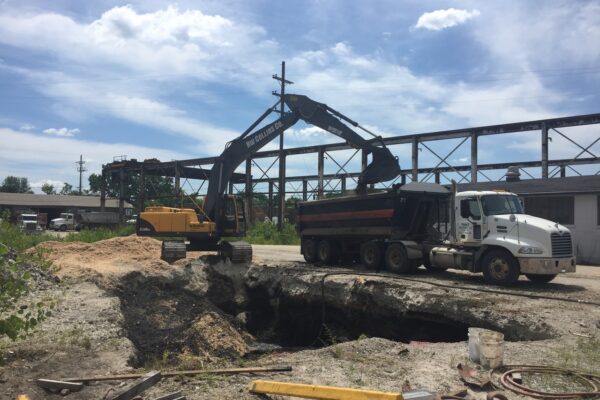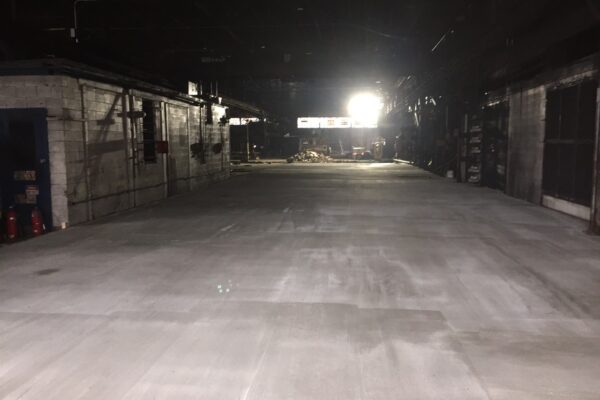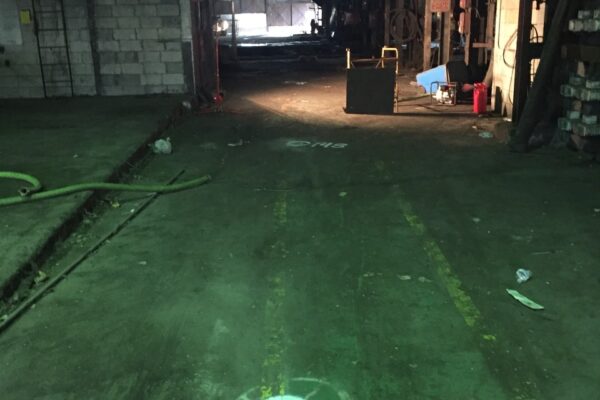Client: Cantera Development Group | Location: Joliet, IL
In 2017 Pioneer was contracted to provide environmental assessment, remediation and site closure services for a 30-acre site in Joliet. The property was historically utilized for manufacturing horseshoes for the civil war, and continued to operate as a steel rolling mill until 2013. Following preliminary investigation activities, which identified various environmental concerns associated with the historical industrial operations, the property was enrolled in the Illinois Environmental Protection Agency’s (EPA’s) Site Remediation Program (SRP) and a comprehensive investigation was performed to fully evaluate the site in accordance with Illinois EPA regulations. This assessment included an evaluation of polychlorinated biphenyls (PCBs) under US EPA guidance.
Pioneer’s investigation included extensive soil and groundwater sampling and analysis for site characterization and delineation purposes. The analytical results from the cumulative subsurface investigation activities indicated that certain volatile organic compounds, polynuclear aromatic hydrocarbons, metals and PCBs were detected at concentrations exceeding the applicable remediation objectives. Additionally concentrations of total petroleum hydrocarbons (TPH) exceeded the site-specific soil attenuation values, indicating the presence of free product (presumed to be old, degraded fuel oil) in a limited portion of the site that was historically identified with aboveground storage tanks (ASTs). Additionally, elevated PCB impacts were identified in a limited area of the site, presumably associated with the historical presence of PCB-containing transformers.
Remediation activities included conventional hot spot remediation to remove the TPH impacts, and the post-remediation sampling confirmed that the TPH impacts have been successfully remediated. A risk-based approach to closure was approved by the IEPA and USEPA, which allowed the residual impacts to remain in-place and minimize the need for engineered barriers. The site was issued a comprehensive No Further Remediation (NFR) letter from the Illinois EPA in April 2020.




